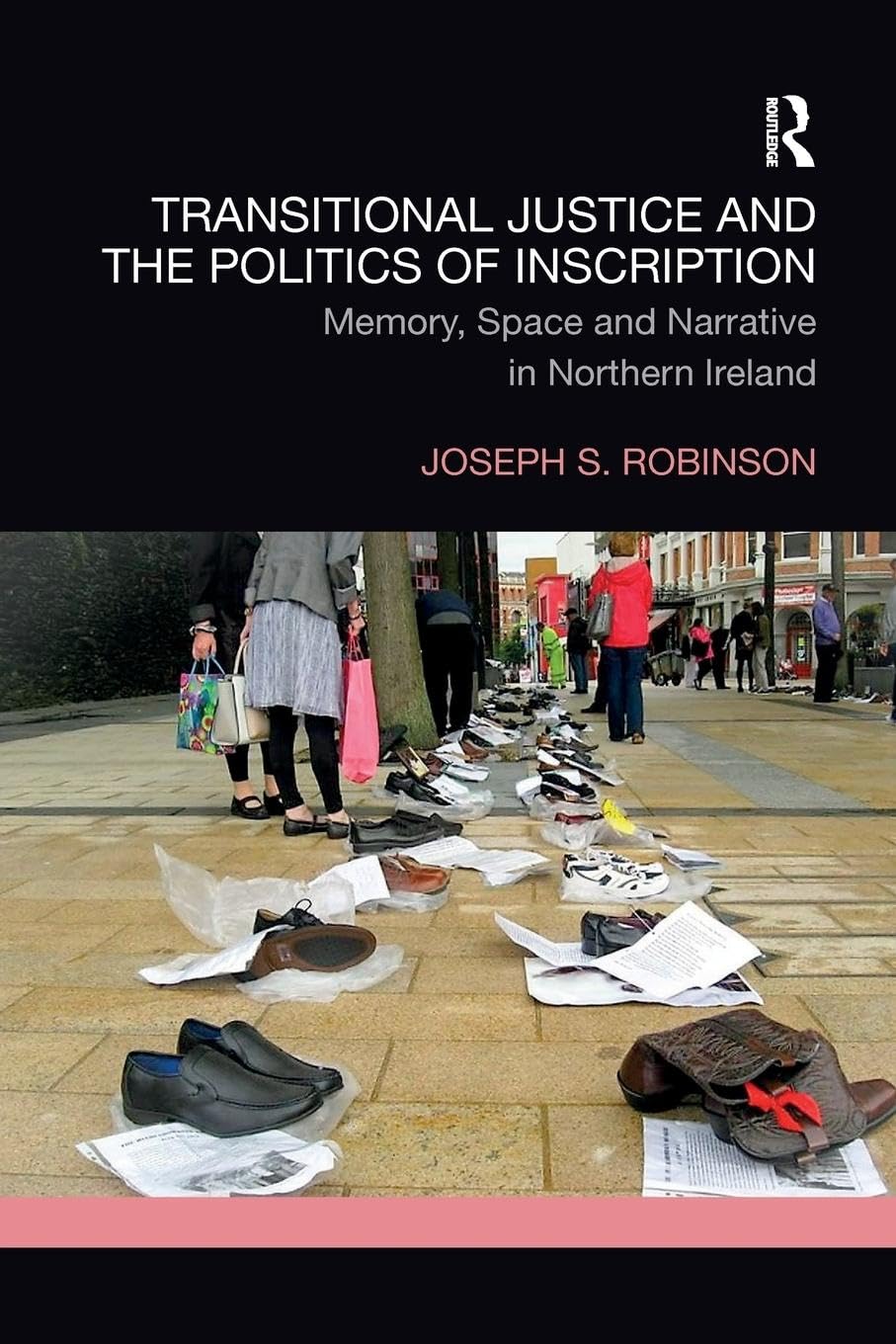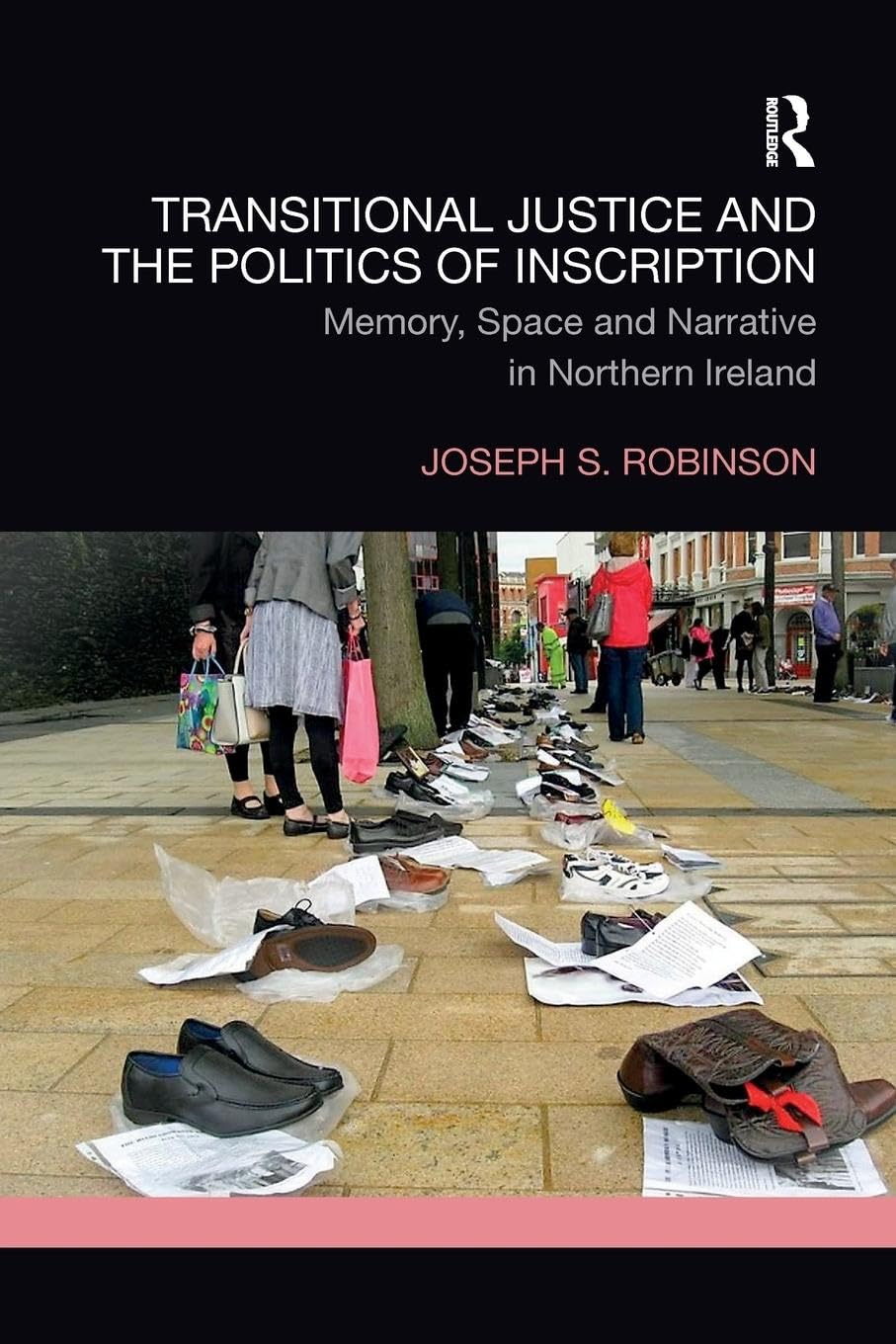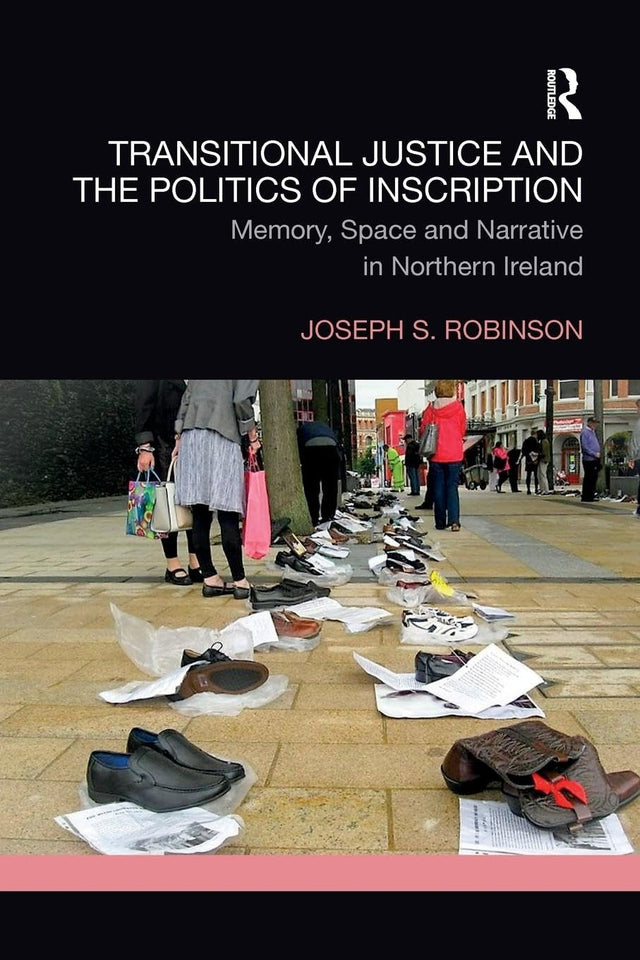Transitional Justice and the Politics of Inscription: Memory, Space and Narrative in Northern Ireland
Transitional Justice and the Politics of Inscription: Memory, Space and Narrative in Northern Ireland is backordered and will ship as soon as it is back in stock.
Couldn't load pickup availability
Genuine Products Guarantee
Genuine Products Guarantee
We guarantee 100% genuine products, and if proven otherwise, we will compensate you with 10 times the product's cost.
Delivery and Shipping
Delivery and Shipping
Products are generally ready for dispatch within 1 day and typically reach you in 3 to 5 days.
Book Details
-
Author: Robinson, Joseph
-
Brand: Routledge
-
Binding: Paperback
-
Edition: Illustrated
-
Number of Pages: 262
-
Release Date: 10-01-2018
-
ISBN: 9780367191740
-
Package Dimensions: 9.1 x 6.1 x 0.9 inches
-
Languages: English
About the Book
Title: Transitional Justice and Memory: Northern Ireland and the Politics of Public Memory
Author: Joseph Robinson
This book explores the intersection of transitional justice and memory studies, using Northern Ireland as a primary case study. The focus is on how societies and individuals confront and reckon with a traumatic past, a central question in the field of transitional justice.
Key Themes:
-
Memory in Transitional Justice: Robinson argues that understanding how memory shapes narratives of the past is crucial for theorists and practitioners of transitional justice.
-
Case Study of Northern Ireland: Through interviews with "memory curators" and analysis of secondary literature, the book offers an in-depth look at how the bodies of the dead, the injured, and the traumatised are represented in transitional justice.
-
Marginalized Voices: The book highlights how often-silenced or marginalized voices are integral in shaping a full understanding of the traumatic past.
-
Challenging National Reconciliation: Robinson challenges the imperative of national reconciliation, advocating for a politics of public memory that allows for democratic debate and multiple perspectives on a traumatic past.
Importance of the Work:
This book offers a critical exploration of how memory works within transitional justice processes. It provides fresh insights into how memory can be used to foster vibrant democratic debate and healing in societies recovering from conflict and trauma.





